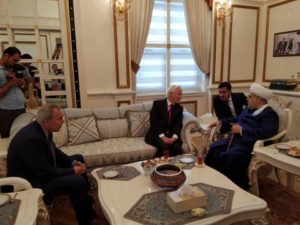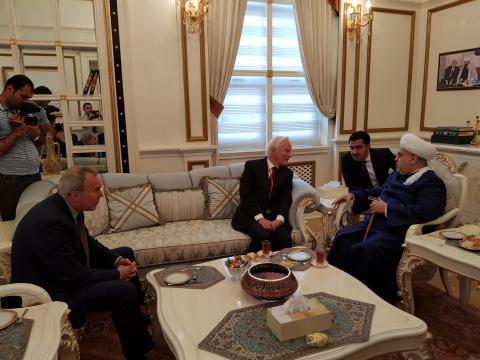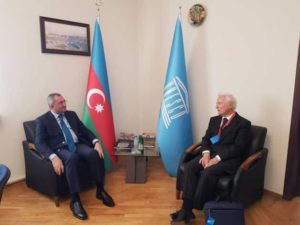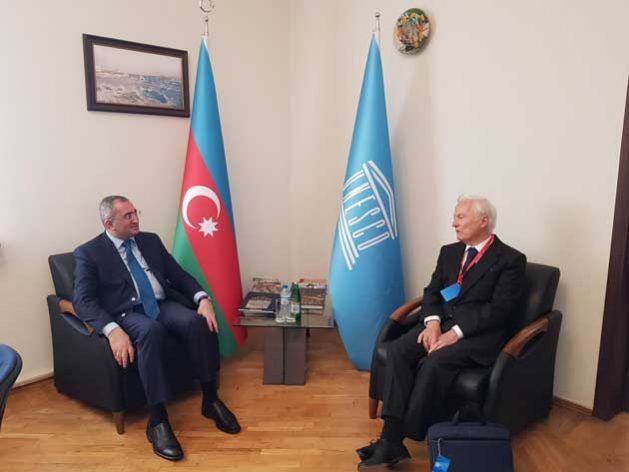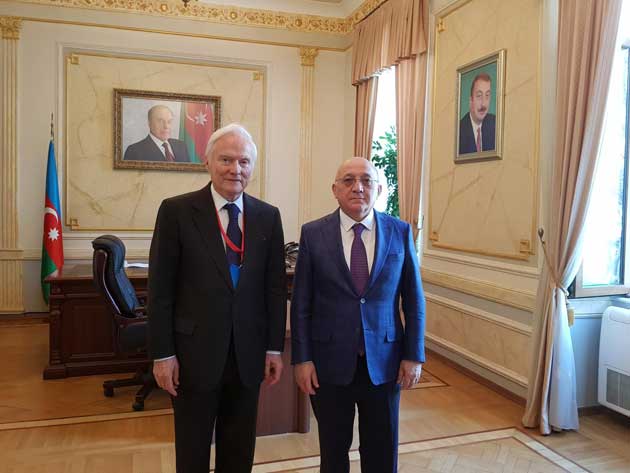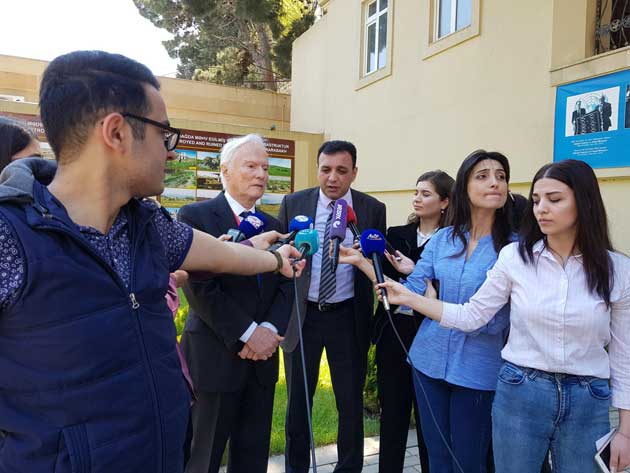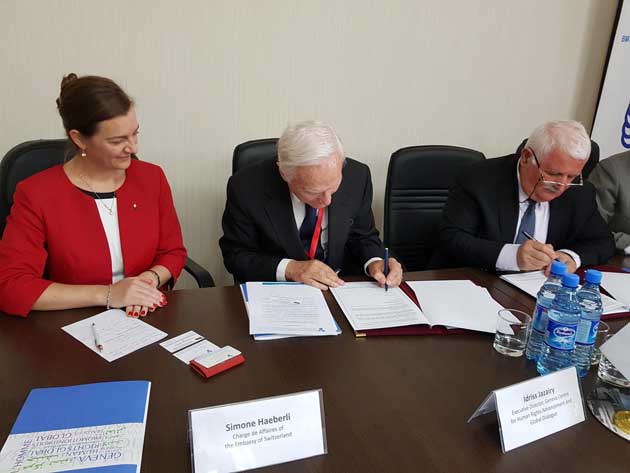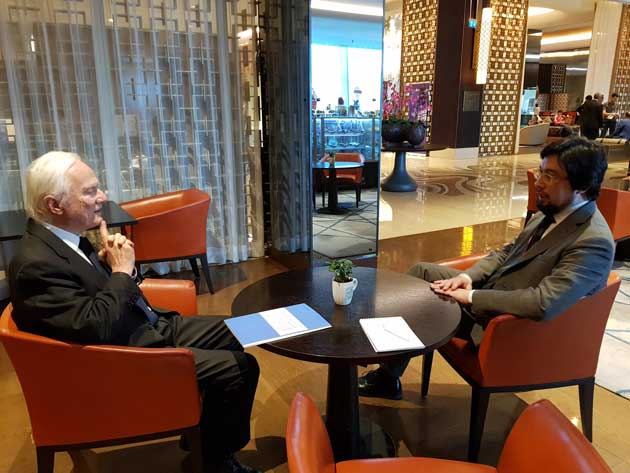
Armed Conflicts, Civil Society, Crime & Justice, Global, Headlines, Human Rights, TerraViva United Nations, Trade & Investment
What matters more: ethics or profit?
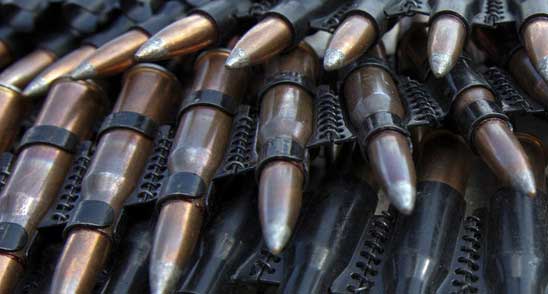
Global arms trade is booming and has become a lucrative business.
– “I don’t want to see a single war millionaire created in the United States as a result of this world disaster.” 1
These were the words of US President Franklin D. Roosevelt on 22 May 1940 when he learned of individuals profiting because of the booming arms trade industry during the Second World War. Seven decades down the line, President Roosevelt’s warning against the rise of the military-industrial complex and war profiteers is more relevant than ever and a telling testimony that for many in safe places war means profit. But, should the pursuit of economic profit be allowed to supplant ethical considerations, especially when weapons often end up in the hands of terrorists, human rights violators and criminal governments?
There is no doubt that the global arms market remains a lucrative business. Arms trade raises numerous ethical issues both for the exporting and for the importing country. War profiteers operate with scant concern for ethical and moral considerations, being guided by the search for power or profit for their corporations. Those who produce and sell arms have been called “merchants of death.” 2 HH Pope Francis said it was hypocritical to speak of peace while fuelling the arms trade, which only serves the commercial interests of the arms industry. 3 It is of course the inalienable right of States to exercise their right to self-defence as stipulated in Article 51 of the United Nations Charter and to maintain independent military strength to deal with periodic armed conflict or threats that may emerge. Experience shows that arms exporters fuel conflict and create an atmosphere not at all conducive to peace and development in the world. A business model the feeds on armed conflict, violence and instability must be banned in the 21st century.
According to recent statistics from the Stockholm Peace Institute, arms sales of the world’s 100 largest arms-producing and military services companies totalled USD 398.2 billion in 2017. 4 That is more than the nominal cumulative GDPs of South Africa, Denmark, Singapore, Egypt, Algeria and Malaysia, a group of countries which is home to more than 200 million people. Since 2002, annual arms sales have surged 44% and are expected to continue growing in the years to come. 5 In other words, international arms trade is “big business” and a vector for economic growth in some countries, reminiscent of John Maynard Keynes’ vision of ‘Military Keynesianism’.
In the Middle East, the irregular and black-market arms trade – estimated at USD 10 billion a year – have weaponised extremism and fuelled instability. Disturbing images of civilian infrastructure being bombed and destroyed by extremist groups are telling testimonies that the flow of arms and weapons continues to exacerbate violent conflict in the Arab region. This is particularly the case in Syria, Libya and Iraq where the supply of weapons to the warring sides has prolonged the fighting and adversely affected the civilization population. The rebuilding of societies affected by armed conflict and violence in the Middle East and North Africa (MENA) region is estimated at USD 250 billion. A price tag that the next generations in the MENA region will have to repay for decades to come.
In this connection, world civil society must take action to curb future arms proliferation in regions prone to armed conflict and violence. Governments and arms traders must commit to respecting and to fulfilling the provisions set forth in the Guiding Principles on Business and Human Rights of the United Nations. 6 The aim should be to identify, prevent and mitigate as the case may be, the human rights-related risks of business activities in conflict-affected areas. Civilians should not have to bear the brunt, as they do now, of the devastating consequences of military conflict. The greed involved in the arms trade must be kept in check.
As foreseen in Sustainable Development Goal (SDG) 16 of the 2030 Agenda for Sustainable Development, the promotion of just, peaceful and inclusive societies rests on the ability of world society to promote a climate conducive to peace and sustainable development. According to the United Nations Office for Disarmament Affairs, the countries that are furthest from achieving the targets of the Sustainable Development Goals (SDG) are in, or emerging from, armed conflict and violence. The best investment to peace and prosperity therefore rests on the ability of decision-makers and governments to curb arms trade, prohibit economic gains from war, armed conflict and human suffering and instead commit to rally for a world where peace and justice prevails. The simple motto for all should be “disarmament for development”. What is most needed is a conversion strategy that will gradually transform war economies into sustainable peace economies. 7
1https://www.thenation.com/article/war-profiteering/
2https://www.foreignaffairs.com/reviews/capsule-review/1934-07-01/merchants-death
3https://cruxnow.com/vatican/2017/06/03/pope-franciss-prayer-stop-merchants-death/
4https://www.sipri.org/sites/default/files/2018-12/fs_arms_industry_2017_0.pdf
5 Ibid
6https://www.ohchr.org/documents/publications/GuidingprinciplesBusinesshr_eN.pdf
7 See 2014 report to the Human Rights Council by the UN Independent Expert on the Promotion of a Democratic and Equitable International Order, http://ap.ohchr.org/documents/dpage_e.aspx?si=A/HRC/27/51
Blerim Mustafa, Project and communications officer, the Geneva Centre for Human Rights Advancement and Global Dialogue. Postgraduate researcher (Ph.D. candidate) at the Department of Politics and International Relations, University of Leicester (UK).

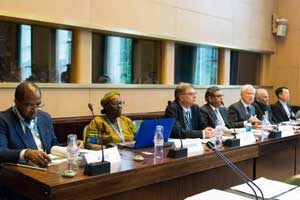
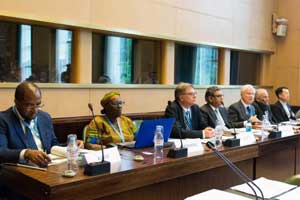 The aim of this Assembly was to invite the international community to take a joint stand against racism, racial discrimination and intolerance and to address the fundamental structural root causes of these scourges through a robust and universal implementation of the DDPA.
The aim of this Assembly was to invite the international community to take a joint stand against racism, racial discrimination and intolerance and to address the fundamental structural root causes of these scourges through a robust and universal implementation of the DDPA.